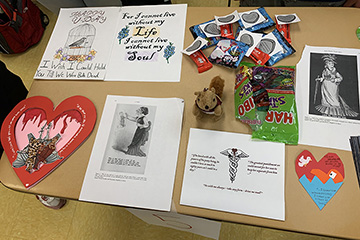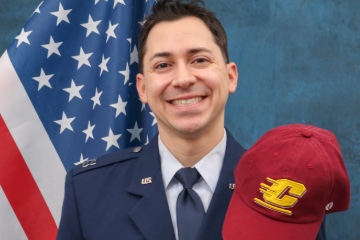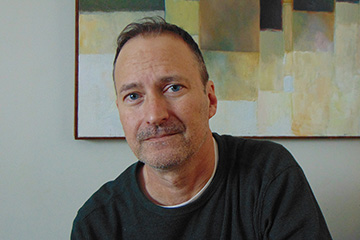Studying Stigma
Alexandra Thelan, a doctoral psychology student, analyzed factors that prevent survivors of Military Sexual Trauma (MST) from receiving professional help
 Alexandra Thelan, a doctoral student in the Department of Psychology, analyzed factors that prevent survivors of Military Sexual Trauma (MST) from receiving professional help. According to recent research, around 16% of veteran and active-duty military members report MST after experiencing sexual harassment or sexual assault. Compared to other types of traumas such as combat and other forms of sexual assault, MST is associated with higher rates of PTSD, depression, anxiety, and overall poorer quality of life. However, when seeking out mental health services, survivors are often met with barriers preventing them from receiving proper help. Thelan investigates these barriers and their impact on survivors of MST under the supervision of Elizabeth Meadows, Ph.D.
Alexandra Thelan, a doctoral student in the Department of Psychology, analyzed factors that prevent survivors of Military Sexual Trauma (MST) from receiving professional help. According to recent research, around 16% of veteran and active-duty military members report MST after experiencing sexual harassment or sexual assault. Compared to other types of traumas such as combat and other forms of sexual assault, MST is associated with higher rates of PTSD, depression, anxiety, and overall poorer quality of life. However, when seeking out mental health services, survivors are often met with barriers preventing them from receiving proper help. Thelan investigates these barriers and their impact on survivors of MST under the supervision of Elizabeth Meadows, Ph.D.
Three common barriers that prevent MST survivors from seeking professional help include individual characteristics, institutional factors, and stigma-related beliefs. Individual characteristics that can decrease one’s access to care include age and gender. Institutional barriers involve being unable to make an appointment because of issues with public transportation or getting time off of work. Another factor impacting one’s journey to receiving professional help for MST is assault-related self-stigma, the process of internalizing stereotyped and prejudiced views about the assault. Patients often feel ashamed and, thus, are less likely to disclose their trauma to health care providers. To learn more about self-stigma and its impact on MST survivors, Thelan surveyed 202 female military personnel with MST.
Using various surveys, Thelan measured the participants’ self-stigma related to three topics; mental health, assault, and seeking professional help. Participants were also surveyed on PTSD symptoms, rape myth acceptance (i.e., negative beliefs that vilify rape victims), negative assault disclosure reactions (i.e., not being believed, being blamed), and internal locus of control (i.e., believing that one’s actions are the result of their own abilities). Thelan’s goal with the study was to better understand how assault-related self-stigma forms and its impact on whether survivors seek help or not.
Findings from Thelan’s study suggest that post-assault factors, such as PTSD and negative disclosure reactions, have a greater impact on survivors’ decision to seek help than pre-existing beliefs, such as rape myth acceptance and internal locus of control. Additionally, she found help-seeking self-stigma significantly reduced participants seeking mental health services compared to the other types of self-stigma. “These results suggest that reducing help-seeking self-stigma should be the primary focus of attempts targeting self-stigma in female survivors of MST,” Thelan writes.
Results from Thelan’s study can be used to help create stigma-reducing programs and thus increase the likelihood of survivors receiving professional help. In doing so, these results would play a role in improving the overall quality of life for individuals with MST.




